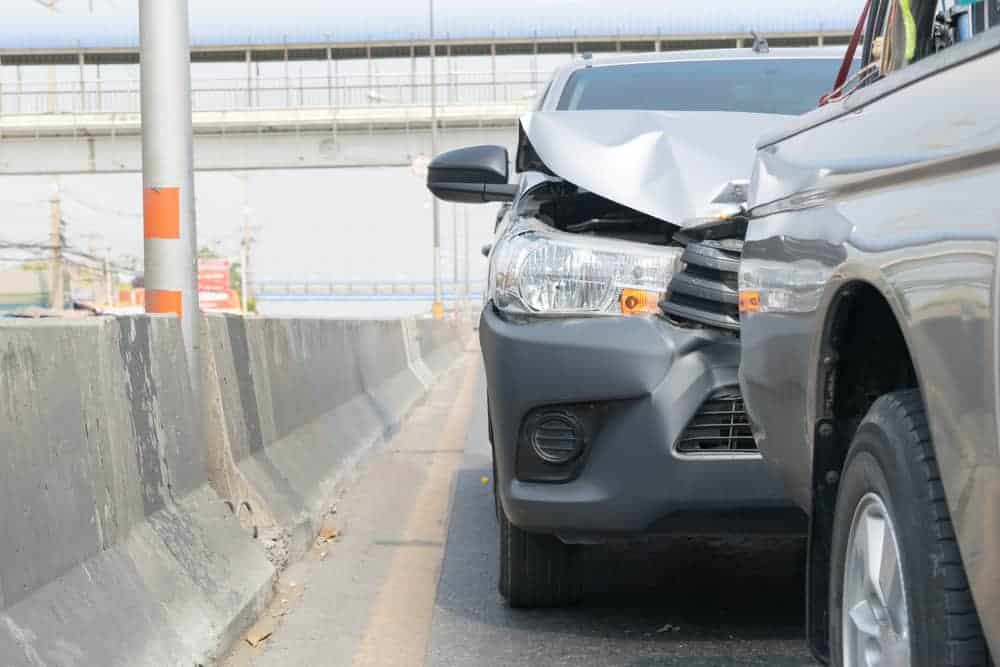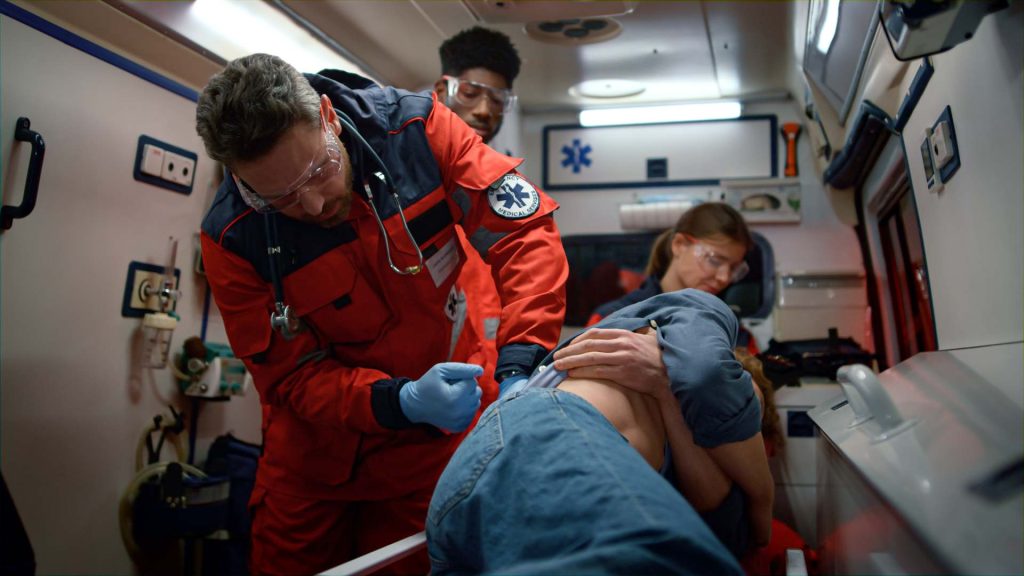One of the most common forms of car accidents is rear-end collisions, in which your car is hit from behind, most often at a low speed. Fortunately, these types of accidents often cause minor damage to the vehicles involved, resulting in less serious injuries than other types of crashes. However, this does not mean that a rear-end collision is always harmless. People involved in these crashes can suffer rear-end collision injuries, even fatal ones. They are also one of the most common reasons people seek whiplash treatment. Even if you feel fine, it’s important to visit a doctor after even a minor accident to check for hidden injuries.
Why You Should Never Ignore Rear-End Collision Injuries
After an accident, you may feel perfectly fine and even more energetic than normal. This is due to the body’s response to stress, in which hormones like adrenaline are released in order to allow you to keep going. This adrenaline and other endorphins can cover up even severe car accident injuries or pain that may not become obvious for hours, or even days. While you may be feeling okay, that does not mean there is nothing going on in your body that can cause damage.
At the scene of the accident, the first responders will likely do an evaluation to rule out anything obvious, but they will not be able to do thorough imaging at this time. They may also miss injuries that are not visible and you are not yet able to explain symptoms.
Rear-Ended Injury Symptoms To Watch Out For
Common symptoms after being rear-ended include:
- Neck pain or stiffness (whiplash)
- Back pain or discomfort
- Headaches or migraines
- Dizziness or lightheadedness
- Shoulder or arm pain
- Tingling or numbness in the arms or hands
- Difficulty concentrating (brain fog)
- Fatigue or difficulty sleeping
- Muscle spasms or soreness
- Bruising or tenderness
Common Rear-End Collision Injuries
Because you are often stopped, or moving extremely slowly, when being rear-ended, the sudden impact can cause the body to move at an unnatural speed, in ways it normally would not. This can lead to a number of serious injuries to the spinal cord, back, neck, bones, and brain. Some of the most common injuries in rear-end collisions are also prone to delayed symptoms.
Whiplash is one of the most sustained injuries after being rear-ended. This occurs when the neck is suddenly jolted backward and forward, causing damage to the soft tissues in the area. Whiplash leads to neck pain and stiffness and can cause a lack of mobility. With proper whiplash treatment, the condition is usually reversible and can be gone within a matter of weeks or months.
Another common occurrence due to the sudden movement of the body is a concussion, or a mild form of traumatic brain injury. Concussions are caused by the head hitting a hard object within the car, or even moving enough to hit the skull on impact. While this brain injury is mild, it can become more severe when left untreated. Learn more about concussion symptoms and treatments.
Other internal injuries, including organ damage and spinal damage, can occur as a result of a rear-end collision as well.
Should I Go to the Doctor After Being Rear-Ended?
Even if you feel fine after a crash or believe your symptoms are manageable at home, visiting a specialist is highly recommended to ensure there are no underlying issues. Imaging performed during this visit not only helps identify injuries that might go unnoticed until they worsen but also establishes a medical record that can support any claims you file. Lawyers often emphasize the importance of creating a documented trail of medical care to link your injury to the accident, while doctors encourage prompt visits to reduce risks and begin treatment as early as possible.
Specialists in whiplash treatment stress the urgency of addressing injuries quickly, as untreated whiplash can worsen significantly over time. Many individuals fail to recognize delayed symptoms, such as neck pain or stiffness, as signs of whiplash, often continuing their routines and unknowingly aggravating the injury. Moving your neck and shoulders without a structured exercise plan from a physical therapist can further damage tissues, increasing pain and potentially leading to long-term or permanent complications.
When to Seek Emergency Care After Being Rear-Ended
While it’s always wise to see a doctor after a car accident, some injuries may require immediate emergency care. Seek emergency attention if you experience:
- Loss of consciousness or confusion
- Severe neck or back pain
- Uncontrollable bleeding
- Difficulty breathing
- Numbness, weakness, or paralysis in any part of your body
- Sudden, severe headaches or vomiting
If you’re uncertain whether your symptoms warrant an emergency visit, it’s better to err on the side of caution. Quick intervention can make a significant difference in recovery and outcomes.
Comprehensive Care for Rear-End Collision Injuries at AICA
If you have recently been involved in a rear-end car accident, you will want to meet with a specialist who is well-versed in car accident injury and whiplash treatment. At AICA Orthopedics, our team of multidisciplinary specialists is focused on giving car accident victims the care they need to return to their normal activities. Through an onsite imaging center and a combination of doctors, chiropractors, and physical therapists, AICA Orthopedics provides a comprehensive care plan for all our patients. Don’t wait until your pain is severe. Call us today for a full evaluation.
FAQs on Rear-End Collision Injuries
What should I do immediately after being rear-ended?
Immediately after being rear-ended, ensure your safety by pulling over if possible, and call emergency services. Document the accident with photos, exchange information with the other driver, and seek medical attention even if you feel fine.
How soon should I see a doctor after being rear-ended?
It’s best to see a doctor within 24-48 hours after a rear-end collision, even if you don’t feel injured. Early evaluation helps identify hidden injuries and prevents complications.
What are the most common delayed symptoms after a rear-end collision?
Delayed symptoms can include neck pain, headaches, dizziness, fatigue, numbness in the limbs, and difficulty concentrating. These may take hours or even days to appear.
Will insurance cover my medical expenses after a rear-end collision?
In most cases, your medical expenses are covered by the at-fault driver’s insurance or your own insurance, depending on your coverage. Always consult with your insurer to confirm.





